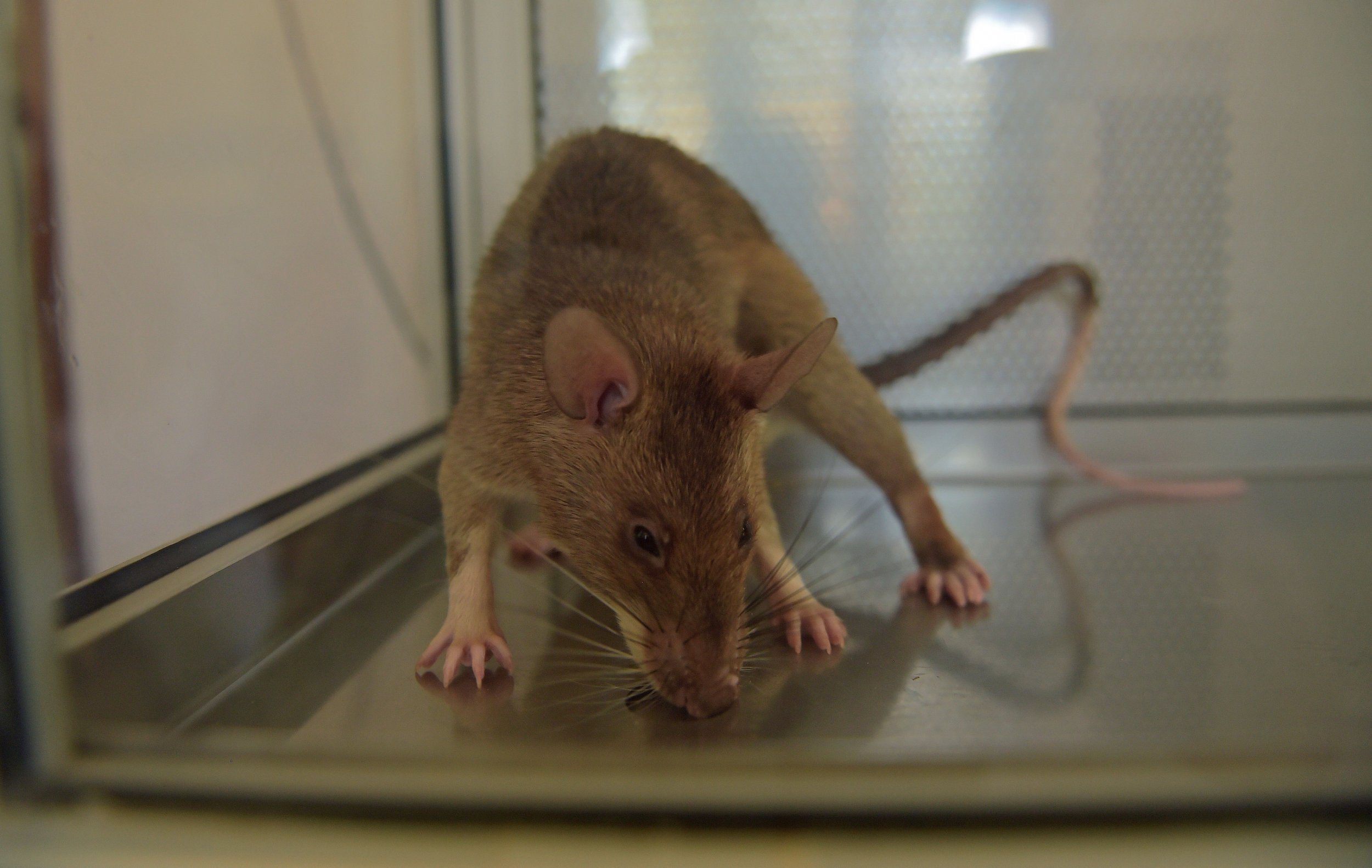
Rats can detect whether children have tuberculosis (TB)—a deadly infectious disease which generally affects the lungs—and are more effective at this task than commonly used tests, according to a new study published in the journal Pediatric Research.
Inspired by anecdotal reports that TB patients give off a specific odor, a team led by Georgies Mgode from the Sokoine University of Agriculture in Tanzania trained African giant pouched rats to sniff samples of saliva and mucus—known as sputum samples—from 982 children under five infected with the disease. These children had already been given standard smear tests at clinics in the Tanzanian capital of Dar es Salaam.
Of these children, the smear tests showed that 34 children had TB. However, when the same samples were given to the rats, a further 57 cases were found. These extra cases were later confirmed with a more advanced fluorescence microscope test and the relevant clinics were notified so that infected patients who had been missed by the first examinations could receive treatment.
The rats' abilities are promising, according to Mgode, because current methods for detecting TB are far from perfect, especially in less-affluent nations in Sub-Saharan Africa and Southeast Asia where the disease is rife and cheap smear tests are commonly used.
The accuracy of these smear tests depends on the quality of the sputum samples, but often, very young children cannot provide enough saliva or mucus to be analyzed.
"As a result, many children with TB are not bacteriologically confirmed or even diagnosed, which then has major implications for their possible successful treatment," Mgode said in a statement. "There is a need for new diagnostic tests to better detect TB in children, especially in low and middle-income countries."
The new study builds on previous work conducted in Tanzania and Mozambique where African giant pouched rats were taught to pick up the scent of the tuberculosis bacterium using a similar technique to how rats are taught to trained to detect the odors released by landmines.
Tuberculosis is one of the top 10 causes of death worldwide, according to the World Health Organization, killing 1.7 million people in 2016. More than 95% of these deaths occur in low and middle-income countries.
Uncommon Knowledge
Newsweek is committed to challenging conventional wisdom and finding connections in the search for common ground.
Newsweek is committed to challenging conventional wisdom and finding connections in the search for common ground.
About the writer
Aristos is a Newsweek science reporter with the London, U.K., bureau. He reports on science and health topics, including; animal, ... Read more





